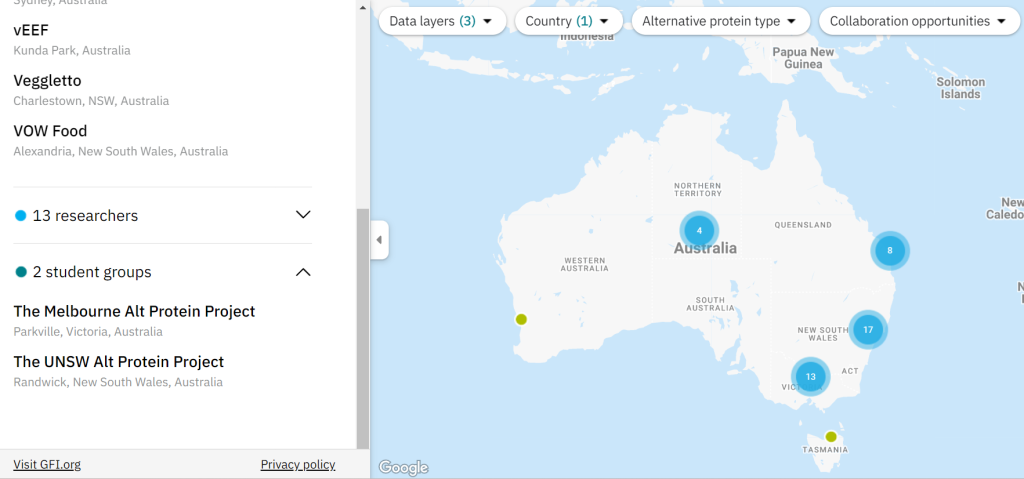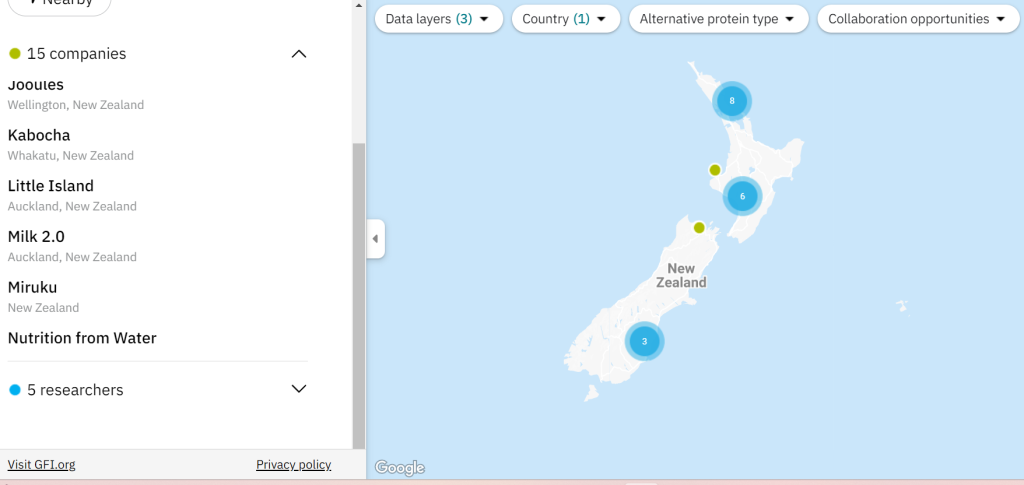The Good Food Institute (GFI) has launched an interactive alternative proteins ecosystem map as a new resource for professionals in the industry.
According to GFI, the ecosystem map is a public-facing web resource that allows users to easily visualize and interact with geographical “hot spots” of alternative protein activity across the globe. The global think tank describes the map as a way for members of its communities to easily look across datasets to understand patterns and clusters of activity in the sector.
The ecosystem map currently contains three data layers: specialized companies from GFI’s company database, researchers from its researcher directory, and active student groups in the Alt Protein Project. The think tank said it plans to include additional data layers such as research centers, education and training programs, and production facilities.

“The alternative protein field is not a monolith — it is a growing movement comprising many vibrant disciplines, communities, and cultures around the globe all trying to build a better food system for all,” said Amy Huang, Associate Director of Scientific Ecosystems at GFI, in a Substack post.
“While this map illuminates the areas where alternative protein activity is happening in full force, it also shines a light on the areas where we still have work to do in inviting everyone to the table,” Huang said.
GFI is calling on the community to apply to join its directory to increase the comprehensiveness of the map, with particular interest in academic researchers working on plant-based, cultivated, or fermentation technologies, or active or aspiring alternative protein researchers not yet listed in the think tank’s directory.

GFI says participating in its alternative protein researcher directory allows researchers to share their work on alternative protein; publicize ways researchers hope to collaborate with other experts, labs, or companies; and identify potential partners to help them scale up the impact of their work.
Participants also receive curated updates on research developments, funding opportunities, scientific events and forums, and collaborators that match researchers’ skills and interests.
To stay up-to-date on the latest industry headlines, sign up to Future Alternative’s enewsletter.
Posted on:


